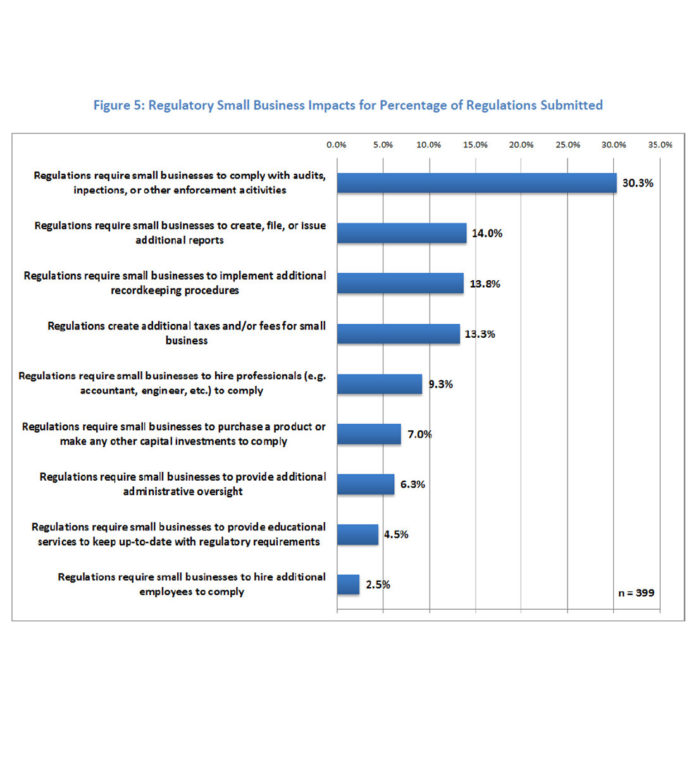
PROVIDENCE – The R.I. Office of Regulatory Reform released a report Tuesday outlining key findings and recommendations from period two of the Regulatory Reform Initiative to analyze all state-agency regulations and their impact on Rhode Island’s small businesses.
During the second review phase, state agencies recommended the repeal of two additional regulations, after having recommended a dozen regulations for repeal during period one. An additional 12 regulations were identified for amendment on top of the 45 regulations identified in the last progress report.
“The second report is another step in the right direction for regulatory reform,” said Gov. Lincoln D. Chafee in a statement. “A vibrant and growing small business sector is critical to creating jobs in Rhode Island. I applaud the initial efforts of state agencies to be more responsive to small businesses. Moreover, I continue to urge all agencies to develop regulatory solutions that effectively achieve state goals without imposing unnecessary burdens on small employers.”
The reform initiative began last summer after state lawmakers ordered state agencies to analyze all existing regulations within four years, a timeline Chafee accelerated to 480 days. The first of four review phases ended at the close of 2012, and the last is scheduled to end at the close of this year.
Now halfway through the Regulatory Reform Initiative, the ORR has to date received 1,089 regulations for review, or 66.2 percent of the 1,646 total regulations on file with the Secretary of State. Of the 1,089 regulations received, 187 were exempt from review, the ORR said.
Developing a new model for defining whether and how a particular regulation affects local small businesses was a major focus of the ORR in period two, according to the report. During the first two review periods, the ORR defined regulations with “small-business impact” as only those regulations requiring applicable businesses to comply in order to operate.
Based on this model, the ORR identified 164 regulations in period two that impact small businesses, in addition to the 235 regulations identified during period one.
The ORR also identified the top five state entities with the highest percentage of regulations impacting small businesses, which included the Division of Taxation, the Department of Environmental Management, the Coastal Resources Management Council, the Department of Labor and Training, and the Department of Health.
However, in the course of its evaluation, the ORR received feedback from small businesses suggesting that regulations without direct compliance requirements for small businesses may still have a marked impact on those businesses. For example, a regulation that impacts a municipality may eventually translate into an impact on small businesses.
To address the issue, the ORR published in the period two report a new model for defining a regulation’s small-business impact, which the ORR will implement in period three. The new model outlines four different types of small-business impact:
- Direct Impact: Regulations requiring applicable businesses to comply in order to operate
- Decision-Based Impact: Regulations triggered by a business decision related to “opting-in” to a program
- Indirect Impact: Regulations impacting another entity which in turn impacts a small business
- No Impact: Regulations with no direct, decision-based or indirect impact on small businesses
“This model will lead to a more comprehensive reflection of exactly how, and how much, Rhode Island regulations collectively impact its small business community,” the report stated.
“We are beginning to see a much clearer picture of the regulatory environment in Rhode Island, in large part due to input from a wide range of stakeholders,” said Leslie Taito, director of the Office of Regulatory Reform, in a release. “This report demonstrates how and why regulatory processes must change to balance the need to protect taxpayer interests with the need to grow our economy. We have a long way to go, but the improvements under way are what the small business community has been seeking.”
To view the complete report, visit www.admin.ri.gov.












